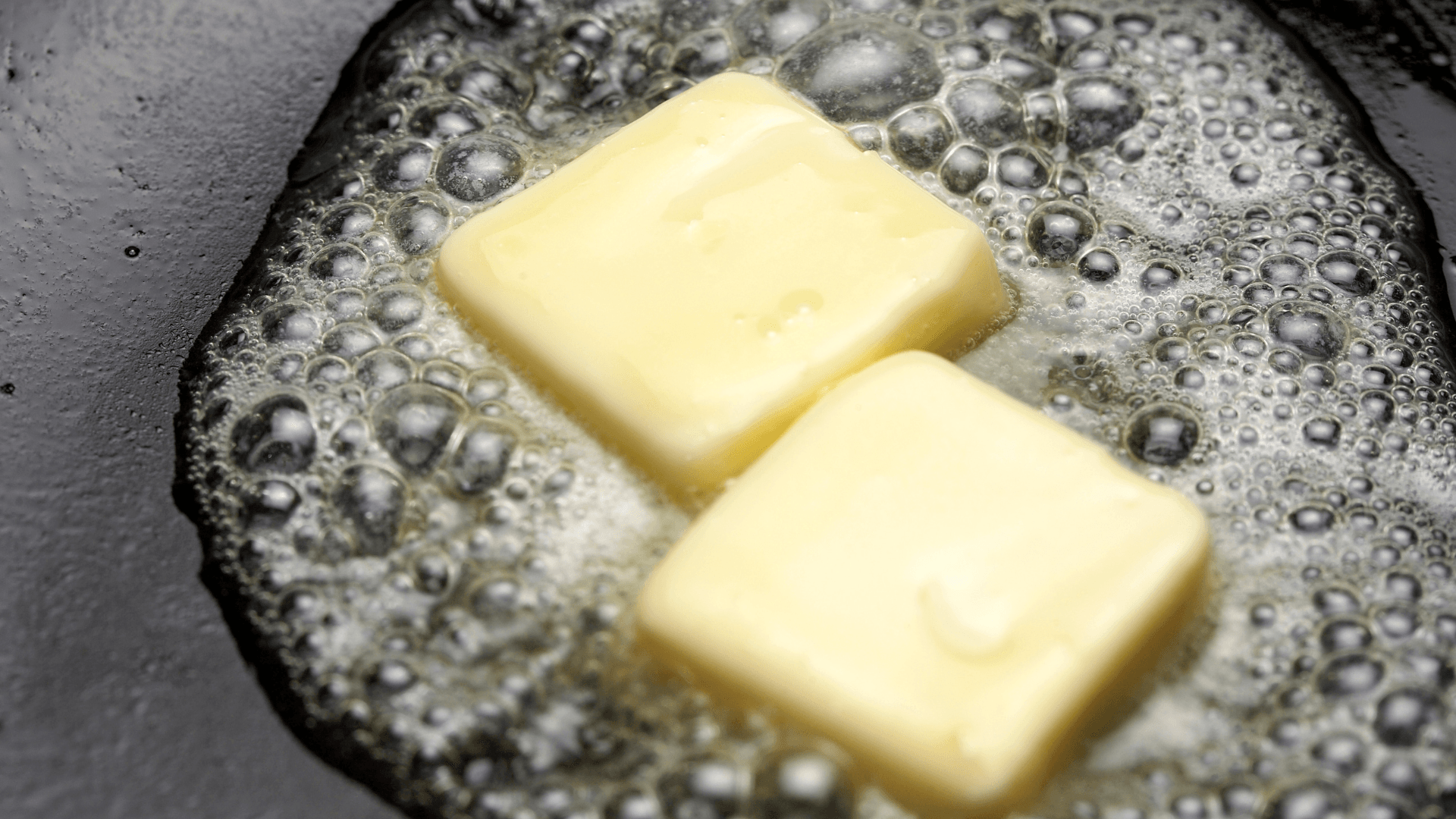Butter is Good For You
Everything Is Better with Butter. Truly.
You drop a slice of thick yellow butter into the hot pan on the stove. Listen to that beautiful sizzle as it melts and begins to turn a lovely golden color. Is your mouth watering yet? Good. Go ahead and add another scoop of butter to that pan because
BUTTER IS OKAY!

For years we were told that butter causes clogged arteries and that high cholesterol diets were due to too many saturated fats (like butter) in our diets. But that trend is slowly turning around as evidence suggests butter is actually better for you than many of the so-called nutritional alternatives.
"Heart healthy spreads" and low-fat foods are made from partially hydrogenated or processed polyunsaturated vegetable oils, margarine, and shortening. None of these are good for you body for two reasons: 1) because of what is in them, and 2) because of what
isn’t in them. These types of spreads are very inflammatory to our digestive systems, leading to all sorts of health complications, namely heart disease.
Before the 1920’s, heart disease was virtually unheard of. However, between 1920 and 1960, Americans reduced their butter consumption by over 75 percent, replacing it largely with products high in trans fats, and heart disease became the number one killer [1]. Products with saturated fats (like butter!) do not produce the same results. In fact, some countries in Europe that consume the most saturated fat in the world and have the lowest rates of heart disease [1].
Two types of fats in our diet are primarily responsible for the formation of heart disease:
- Trans fat - synthetically created, found in partially hydrogenated oil.
- Prevents the synthesis of prostacyclin, which is necessary to keep your blood flowing.
- These fats breakdown the integrity of the cell membranes, which are the basis of the body. Bad cells = bad health.
- Oxidized cholesterol - formed when polyunsaturated vegetable oils (soybean, corn, sunflower) are heated.
- Think fried foods.
- These are the fats that harden your arteries.
Butter, on the other hand, is composed of about 20 percent short- and medium-chain fatty acids. These fats are used by the body right away for quick energy. Because it is used up so quickly, it doesn’t contribute to the fat levels in your blood (cholesterol), and has little impact on the increase of heart disease or obesity. Butter also has many benefits including:
- Protects from arthritis, cataracts, fungal infections, cancer, and hardening of the arteries
- Aids with weight management and muscle growth
- Helps assimilate minerals into the bloodstream
- Enhances brain function and increases cell membrane integrity
- Assists with anti-inflammatory responses systems in our bodies
As with everything, some butters are better than others, largely depending on how the animal was raised:
Best: Raw unprocessed butter made from a grass-fed cow.
Pretty good: Pasteurized butter from a grass-fed cow.
Decent: Regular pasteurized butter in common grocery stores (but see BAD on the next line...)
BAD: Anything that comes from cows fed GE (genetically engineered) grains--which is most of the butter at the grocery store. Conventionally raised cows usually eat a diet of GE corn and soy.
After everything you’ve read from me about things you can’t eat, butter is one thing that’s a sure thing (as long as you shop carefully). So, bring on the butter, and enjoy!
Want more tips of how to navigate your grocery store and purchase the best quality on a budget? Check out
Good Better Best: How to Navigate the Grocery Store.
Sources:
Hoenselaar R. Further response from Hoenselaar. British Journal of Nutrition, 2012.
Don't Miss Out On More!

Heidi Toy FNTP
I help people all over the world heal by identifying and treating the root cause of their body imbalances. Through diet and nutrition, I guide them towards wholeness and balanced lives.
Heidi Toy Functional Medicine Blog














































































































